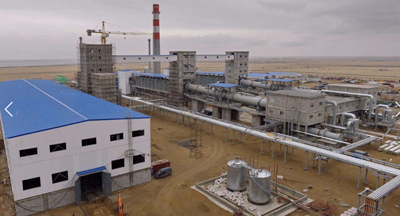
Production of calcined petrol coke is an essential process for the oil industry. This is a process used to reduce sulfur levels in fuels, petrochemicals, and other products. The calcination process changes the structure and element composition of carbonaceous raw materials, which allows them to shrink in volume and increase in mechanical strength. Carbon material is less likely to decompose spontaneously when it's handled and stored because calcination eliminates the vast majority of water and volatile components.
The calcination process is an exothermic reaction, which requires heat energy to be generated from the combustion of hydrocarbons present in the raw petroleum coke. Heat energy can be supplied by a number of methods, including direct gasification and indirect gasification. Natural gas or other fossil fuels are also used. The end result of calcination produces high-quality, electrically conductive coke.
CPC has a number of uses including being burned as an alternative to coal in power plants and as the base for the manufacture of carbon fibers and graphite electrodes. This material is also used for the manufacture of chemicals, such as formaldehyde or phenol. CPC manufacturing is a multi-stage process involving many units. The main steps in the production of CPC are: Crude oil processing, Cracking, Calcination and Thermal conversion. By processing crude oil, refineries can produce petroleum coke, gasoline and diesel fuel. By using catalysts and heat, the cracking process reduces large crude oil molecules to smaller sizes. The lighter crude oil components are converted into heavier products like gasoline, jet-fuel, or asphalt.

During this process, bitumens (smaller hydrocarbon molecules) are formed from a fraction of larger hydrocarbon molecule. They are separated by fractionation from the remaining hydrocarbons. The petroleum coke is all that remains. The solid, black coke resembles coal. Modern refineries produce it as a result of distillation processes and cracking. Thermal cokers are used to further process the coke into a fuel.
You can use a delayed coaler to make low sulfur coke, which is needed for the production of anodes in aluminum melters. Coke should have at least a microstrength (micro-strength) of 34% and sulfur levels of less than 0.5 percent. A desulfurization with NaOH, an alkaline compound, can achieve this.
It has been demonstrated that a new technology developed by researchers from the Gas Technology Institute (GTI), and Superior Graphite Company can be used to produce low sulfur coke of high strength using petroleum needle-coke. This is an adaptation of the delayed coking process and it can be used to produce high strength coke in rotary/shaft ovens. A demonstration plant is currently under construction in Hopkinsville, Kentucky.

Write a Message